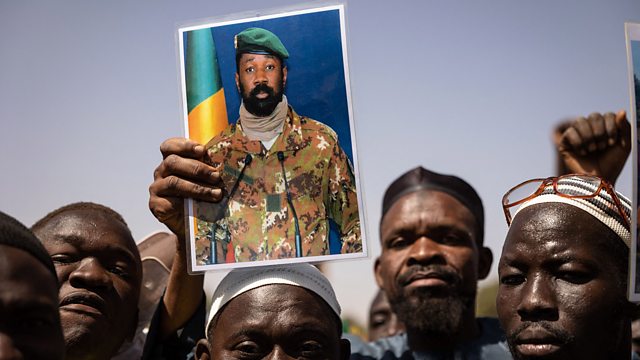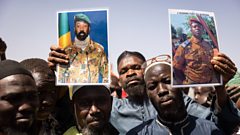Mali: Two recent coups and the military back in charge
As in Burkina Faso, recent coups in Mali have been attributed to a large extent to its failure to crackdown on violent extremists.
The first of the two most recent coups in Mali occurred in August 2020 and came after months of public demonstrations against alleged corruption by President Ibrahim Boubacar Keïta's regime, and its failure to deal with growing militant Islamist attacks. A transitional civilian president - President Bah Ndaw - was appointed. Then in May 2021, the military resumed control, with Col Assimi Goïta back in charge. They promised to organise elections in February 2022, but these were postponed, and they have now proposed a prolongation of the transition for five years. The failure of the military government to run the elections has prompted the threat of sanctions.
As well as growing instability from the insurgency, France has been scaling back its military presence and Mali recently ordered Danish troops to leave. There are concerns that Russia will step into the resulting vacuum, possibly attracted by Mali's economic resources - the country is one of the biggest gold producers in Africa.
Fahiraman Rodrigue Koneh, a senior researcher with the Institute of Security Studies’ Sahel programme, describes the sequence of events, and how they are contributing to a growing instability in the region.
(Photo: Demonstrators in Ouagadougou hold a picture of Colonel Assimi Goita, the Malian military officer who has served as interim President of Mali since 24 May, 2021. Credit: Olympia de Maismont/ AFP/Getty Images)
Duration:
This clip is from
More clips from The Inquiry
-
![]()
Ukraine war: How Russia benefits from Europe buying its gas
Duration: 03:47
-
![]()
How the Ukrainian resistance is exposing Russian weakness
Duration: 03:19
-
![]()
West African coups: What comes next?
Duration: 03:23






